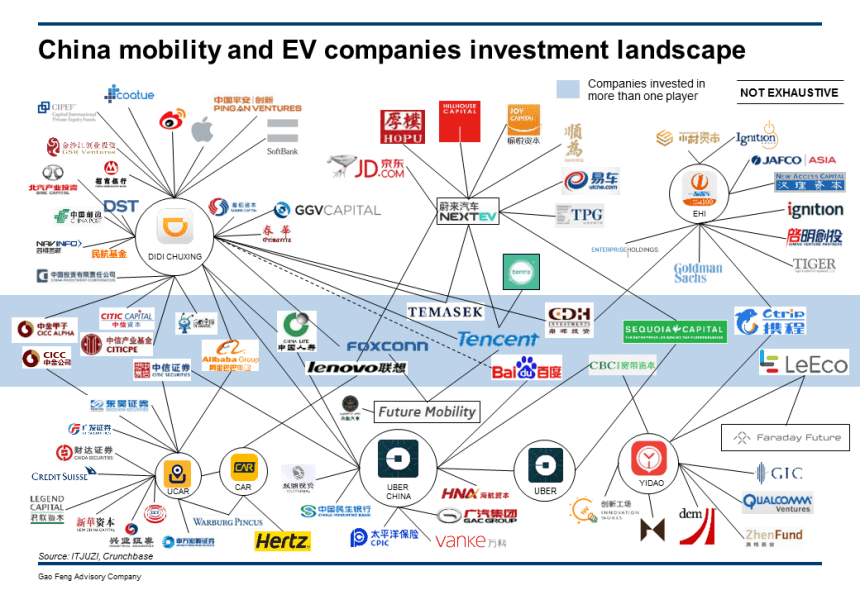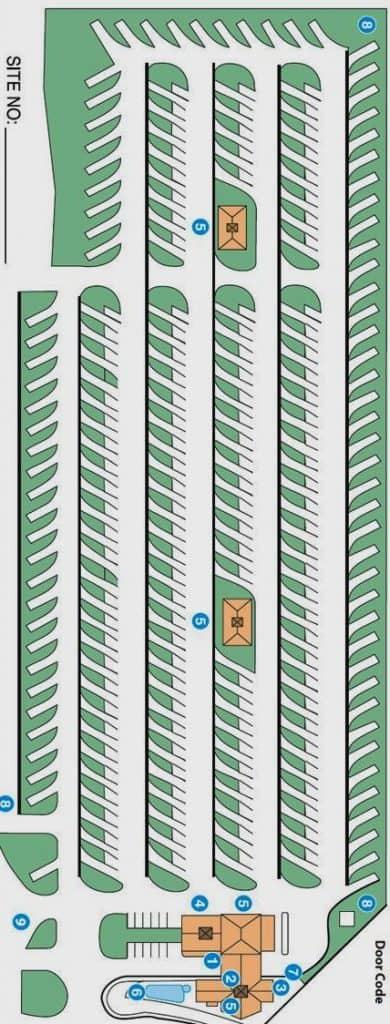Dealers Double Down: Renewed Fight Against EV Mandates

Table of Contents
The Economic Burden of EV Transition for Dealerships
The transition to an EV-centric market places a significant economic burden on dealerships. The high initial investment costs and reduced profit margins on electric vehicles are forcing many to reconsider their long-term viability in this rapidly changing landscape.
High Initial Investment Costs for EV Infrastructure
Adapting to the EV era requires substantial upfront investment. Dealerships face considerable expenses related to upgrading their facilities and training their staff.
- Charging station installation costs: The cost of installing and maintaining Level 2 and DC fast chargers can run into tens of thousands of dollars, depending on the number of bays and the power requirements.
- Employee training needs: Sales staff needs training on EV technology, features, and government incentives, while service technicians require specialized training to diagnose and repair EV batteries and components. This necessitates significant investment in training programs and potentially higher salaries for skilled technicians.
- Inventory management challenges: EVs require different parts and service requirements compared to gasoline-powered vehicles, leading to added complexity and cost in inventory management and parts storage.
This significant capital outlay raises serious concerns about the return on investment (ROI) on EVs for dealerships, particularly when factoring in potentially lower profit margins on EV sales. "EV infrastructure costs" are becoming a major talking point in dealer negotiations with manufacturers and government agencies.
Reduced Profit Margins on Electric Vehicles
Dealers are also expressing concern over the impact of lower profit margins on their bottom line. While the long-term outlook for EV sales is positive, the current market presents challenges.
- Lower profit margins: Compared to gasoline vehicles, the profit margins on EVs are often lower, impacting overall dealership profitability. This is partly due to higher manufacturing costs and increased competition.
- Potential for slower sales cycles: The higher upfront cost of EVs may lead to slower sales cycles and reduced turnover of inventory.
- Challenges in trading in used EVs: The used EV market is still developing, creating uncertainty around trade-in values and potentially hindering sales of new EVs.
The combination of lower profit margins and increased upfront investment significantly impacts "dealer profit margins," making the transition to EVs a financially risky undertaking for many dealerships. The question of "EV profitability" is at the heart of the current debate.
Logistical and Infrastructural Hurdles Faced by Dealers
Beyond the financial aspects, dealerships face significant logistical and infrastructural hurdles in adapting to the EV transition. These challenges hinder their ability to effectively sell and service electric vehicles.
Lack of Adequate Charging Infrastructure
The insufficient development of charging infrastructure represents a major obstacle. Dealerships worry about the capacity to provide adequate charging solutions for their customers and their own fleet.
- Insufficient public charging networks: The current public charging network, while expanding, is still inadequate to meet the growing demand for EVs. Range anxiety remains a significant concern for potential buyers.
- Challenges in installing and maintaining private charging stations: Installing charging stations at dealerships requires significant investment, permits, and adherence to local regulations. Maintaining these stations also adds to operational costs.
- Issues with grid capacity in some regions: Upgrading the electricity grid to support increased EV charging demand is a long and costly process, creating further limitations.
The lack of robust "EV charging infrastructure" is a major barrier to widespread EV adoption and a key concern for dealerships struggling to offer a comprehensive customer experience.
Specialized Training and Expertise Required
Servicing EVs demands a new level of specialized knowledge and skills. Dealerships are finding it challenging to attract and retain technicians with the necessary expertise.
- Need for trained technicians: EV batteries and components require specialized tools and expertise to diagnose and repair. The complexity of EV technology necessitates highly trained technicians.
- Specialized tools and diagnostic equipment: Investing in the necessary specialized tools and diagnostic equipment for EV maintenance is costly.
- Difficulty in attracting and retaining skilled EV mechanics: The shortage of skilled labor in the automotive industry is exacerbated by the need for specialized EV technicians. Attracting and retaining these skilled individuals requires competitive compensation and ongoing training.
"EV technician training" is therefore a critical component of the successful transition to an EV-dominant market. Addressing the "skilled labor shortage" is crucial for both dealerships and the overall automotive industry.
Dealers' Advocacy Efforts and Lobbying Activities
Faced with these challenges, dealerships are actively engaging in advocacy efforts and lobbying activities to influence government policy and the pace of the EV transition.
Industry Associations Leading the Charge
Dealership associations are playing a leading role in representing the concerns of their members and advocating for policies that support a more gradual transition.
- Examples of industry groups: National and regional automotive dealer associations are actively lobbying against overly aggressive mandates or pushing for policies that incentivize EV adoption while considering the needs of dealerships.
- Strategies employed: These strategies include legal challenges to mandates, public relations campaigns, and direct lobbying of policymakers.
This organized effort represents a powerful force in the "automotive lobbying" landscape, shaping the debate around "EV mandate opposition."
Public Relations Campaigns and Consumer Outreach
Dealerships are also engaging in public relations campaigns to shape public perception and highlight concerns about consumer readiness for the rapid shift to EVs.
- Framing the narrative: Dealerships are highlighting concerns about consumer affordability, the limitations of the current charging infrastructure, and the potential impact on the used car market.
- Emphasizing concerns about consumer readiness: Dealerships are emphasizing the need to address consumer concerns and ensure a smooth transition that doesn't leave consumers behind.
By focusing on "EV consumer adoption," "affordability of EVs," and "public perception of EVs," dealerships aim to influence the public narrative and advocate for a more measured approach to EV mandates.
Conclusion: Dealers Double Down: The Ongoing Fight Over EV Mandates
The transition to electric vehicles presents significant economic burdens, logistical hurdles, and challenges for dealerships. The high upfront investment costs for EV infrastructure, reduced profit margins on EVs, and the lack of adequate charging infrastructure create considerable obstacles. Dealerships' advocacy efforts, including lobbying and public relations campaigns, reflect their concerns about the pace and implementation of EV mandates. These efforts aim to secure a more gradual and sustainable transition that considers the economic realities facing dealerships and the overall readiness of the consumer market. To stay updated on the EV mandate debate and understand the challenges facing car dealers, continue following industry news and reports. Learn more about the future of EVs and the ongoing dialogue surrounding this critical transition.

Featured Posts
-
 Review Sparks Mad A Comprehensive Look
May 30, 2025
Review Sparks Mad A Comprehensive Look
May 30, 2025 -
 Montecarlo Masters Final Analysis Of Musettis Injury And Alcarazs Victory
May 30, 2025
Montecarlo Masters Final Analysis Of Musettis Injury And Alcarazs Victory
May 30, 2025 -
 Mery Predostorozhnosti Preduprezhdenie Mada O Nepogode V Izraile
May 30, 2025
Mery Predostorozhnosti Preduprezhdenie Mada O Nepogode V Izraile
May 30, 2025 -
 Karpov I Blagoveschenskaya Tserkov Maloizvestnye Fakty Kyonigsberskoy Operatsii
May 30, 2025
Karpov I Blagoveschenskaya Tserkov Maloizvestnye Fakty Kyonigsberskoy Operatsii
May 30, 2025 -
 Najnowsze Informacje O Rozmowie Trumpa I Zelenskiego
May 30, 2025
Najnowsze Informacje O Rozmowie Trumpa I Zelenskiego
May 30, 2025
